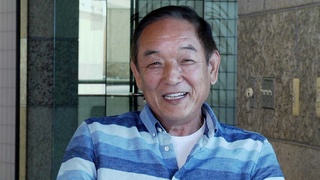Entrevistas
Coming Out Publicly
During this time, when I was active in all these other social justice movements, I was silent on the one issue that was organic to me. I was gay. But I wanted my acting career. And I knew at that time that it was foolish for me to be out because I wouldn't have a career. And so I was silent on that.
But then the AIDS scourge hit. And friends I knew started getting sick and turning skeletal. Ghostly looking. And then they died. It was a horrible period. And so, despite the fact that I was still pursuing an acting career, I supported the AIDS movement with money, and Brad and I marched in AIDS walks. But we were in the allies category. Still closeted. And it wasn't until the California legislature did a ground breaking thing.
Massachusetts had marriage equality in 2004, but that came through the judicial route. In California, both houses of our legislature, the Senate and the Assembly, passed the Marriage Equality Bill, and all that needed to become the law of the state was the signature of our governor, who happened to be Arnold Schwarzenegger. A movie star. Who campaigned by saying, “I'm from Hollywood. I've worked with gays and lesbians. Some of my best friends are gay.” And so I thought surely he would sign that.
But when he vetoed it, playing to his right wing Republican base, my blood was boiling. And yet, I wasn't doing anything about it. That night, we were watching the late night news, and we saw all the young people pouring out onto Santa Monica Boulevard, blasting Arnold Schwarzenegger's veto. Venting on him. And there we were at home, comfortable. Watching TV news. And so we talked about it, and I decided I needed to speak out on this. Because we got so close. And for me to do that, my voice had to be authentic and I spoke to the press for the first time as a gay man. And by extension, that became my act of participation in democracy.
Fecha: February 3, 2015
Zona: California, US
Entrevista: John Esaki, Janice Tanaka
País: Watase Media Arts Center, Japanese American National Museum






